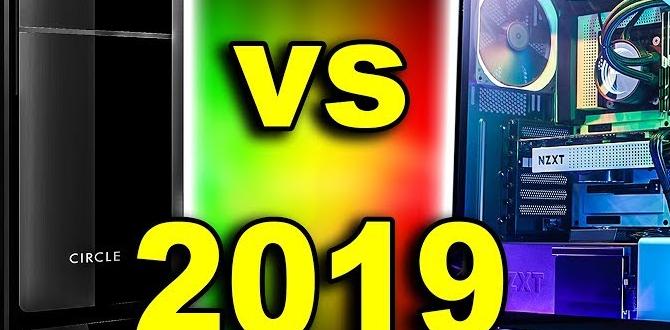When it comes to choosing between a regular PC and a gaming PC, several factors need to be considered to ensure you are making the right choice based on your needs. Let’s delve into the technical aspects to understand the distinctions between the two, including hardware components, performance capabilities, and pricing structures.
Hardware Components
Processor
The processor, often referred to as the brains of the computer, plays a vital role in executing tasks efficiently. Gaming PCs typically feature high-end processors with multiple cores to handle complex gaming processes seamlessly.
GPU
The Graphics Processing Unit (GPU) is crucial for rendering graphics and enhancing gaming experiences. Gaming PCs come equipped with dedicated GPUs that offer superior graphics quality and performance compared to integrated graphics found in regular PCs.
RAM
Random Access Memory (RAM) is essential for multitasking and running applications smoothly. Gaming PCs boast higher RAM capacities to support demanding games and multitasking without any lag.
Storage
Storage options vary between regular PCs and gaming PCs. Gaming PCs often feature faster SSDs for quicker load times, while regular PCs typically opt for HDDs for more affordable storage solutions.
Cooling
Effective cooling systems are crucial for maintaining optimal performance, especially during intense gaming sessions. Gaming PCs are equipped with advanced cooling solutions to prevent overheating and ensure consistent performance.
Performance
Speed
Gaming PCs offer higher processing speeds and faster loading times, enabling a seamless gaming experience with minimal lag compared to regular PCs.
Graphics Quality
The dedicated GPUs in gaming PCs deliver stunning graphics, realistic visuals, and smoother frame rates, enhancing the overall gaming experience significantly.
Multitasking Capability
Thanks to their higher RAM capacities and advanced processors, gaming PCs can handle multiple tasks simultaneously without compromising performance, making them ideal for multitasking.
Price
Initial Cost
Gaming PCs tend to have a higher initial cost due to their specialized components and advanced hardware, while regular PCs offer a more budget-friendly option for general computing needs.
Upgradability
Gaming PCs are often more upgradable than regular PCs, allowing users to enhance performance over time by replacing or upgrading components like GPUs, RAM, and storage drives.
Maintenance Costs
Regular PCs generally have lower maintenance costs compared to gaming PCs, which may require more frequent maintenance due to their high-performance hardware and cooling systems.
Conclusion
When deciding between a regular PC and a gaming PC, it ultimately comes down to your specific requirements and budget. If you prioritize high-performance gaming, immersive graphics, and multitasking capabilities, investing in a gaming PC may be the right choice for you. However, if you are looking for a more budget-friendly option for everyday computing tasks, a regular PC may suffice.
FAQs
1. Can a regular PC be upgraded to perform like a gaming PC?
While it is possible to upgrade certain components of a regular PC, such as adding a dedicated GPU or increasing the RAM, transforming it into a gaming PC may not provide the same level of performance as a purpose-built gaming rig.
2. Are gaming PCs only suitable for gaming?
No, gaming PCs can also be used for various tasks beyond gaming, such as video editing, graphic design, and multitasking, thanks to their powerful hardware capabilities.
3. What factors should I consider when choosing between a regular PC and a gaming PC?
Consider your computing needs, budget, desired performance level, and future upgrade options when deciding between a regular PC and a gaming PC.
4. Do gaming PCs consume more electricity than regular PCs?
Since gaming PCs have high-powered components that require more energy, they may consume more electricity than regular PCs. However, the difference in electricity consumption may vary based on usage patterns and hardware configurations.
5. Is it worth investing in a gaming PC for casual gamers?
For casual gamers who do not require top-of-the-line graphics and performance, a regular PC may be sufficient. Investing in a gaming PC is recommended for avid gamers or professionals who rely on high-performance hardware for their gaming or work.
